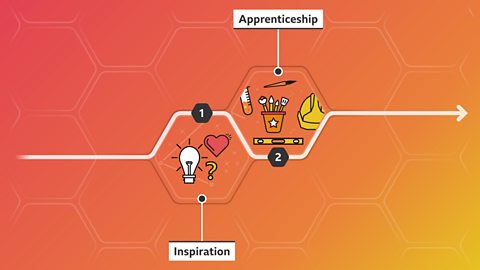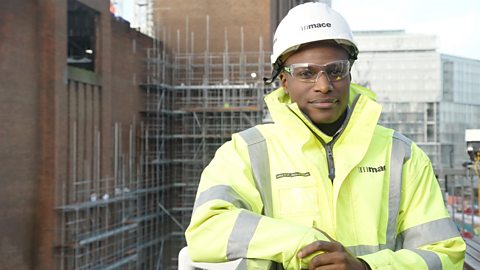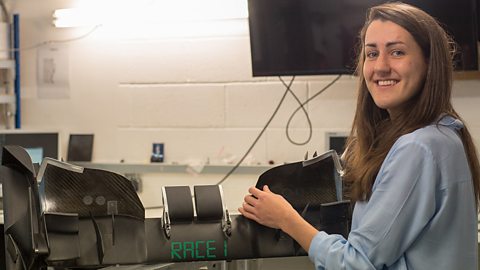I’m on a five-year apprenticeship. I work four days a week on site and one day a week at uni. You gain knowledge from the practical work without the student debt.
I’m Zoe, I’m 21 and I’m an apprentice site engineer.
I joined the construction industry in 2015 as an apprentice. I’ve worked within a team to build a new underground station in the centre of London; one of the largest infrastructure projects in Europe at the moment.
To go on site I have to wear PPE, Personal Protective Equipment. This includes a hard hat, gloves, glasses, a high vis jacket, high vis trousers, and also my steel cap boots. We wear PPE on site because health and safety is super important.
When we were in our heavy construction phase I was out on site every day, marking out where all the walls would go. I’ve then supervised putting in all the reinforcements and then making sure the concrete was poured on time.
Now we’re in the finishing phases, a lot of my time is spent managing our various different sub-contractors on site, making sure that they hit their deadlines.
I’m on a five-year apprenticeship. I work four days a week on site and one day a week at uni.
My father had done an apprenticeship when he first started in the industry. You gain knowledge from the practical work and you don’t have any student debt. So I get paid to go to work and to study.
I’m really proud that I'll be able to bring my friends and family here when it opens and this station will serve people for hundreds of years.
Zoe’s father did an apprenticeship in construction and she was inspired to follow in his footsteps and do the same. After college, she joined a five-year apprenticeship, working for the construction company Laing O’Rourke. This also allows her to go to university one day a week. She gets paid while she learns the role, and feels she has picked up a lot of useful, practical knowledge.
She marks out where walls should go and where concrete should be poured using electrical equipment. She also manages sub-contractors on site, making sure they hit their deadlines.
Zoe enjoys working with a diverse group of people and feels fully supported as she learns new skills. She's looking forward to showing her friends and family the tube station she has helped to build!


What to expect if you want to be an engineer
- How many people work in the engineering sector?
- What can you earn in different roles?
- What routes can you take to get in?
- Is the demand for engineers expected to grow in the future?
Watch the film to find out the answers to these questions, and much more!
Other resources
- See what type of engineering role might suit you with the meet the future you quiz
- Find out more about the different areas of engineering with this guide from Tomorrow's Engineers
- Learn more about roles in engineering with the National Careers Service explore careers tool
- Discover a practical new way to study via T-levels (England-only).
For careers advice in all parts of the UK visit: National Careers Service (England), nidirect (Northern Ireland), My World of Work (Scotland) and Careers Wales (Wales).


Work experience in your area
Find work experience placements with Workfinder.
Tips and advice
Help with interviews, writing a CV and all things work experience related.


How to become an engineer. collection
Find out more about the engineering sector and how those currently working in it got their foot in the door.

Careers in construction. collection
Find out what you could expect from a role in the construction sector.

Amy: Formula 1 engineer
Amy helps develop ways to make racing cars go faster.
